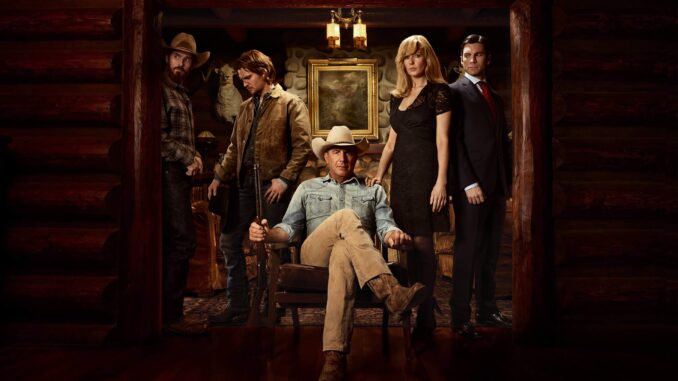
The American West, a landscape steeped in myth and struggle, has found its contemporary oracle in Taylor Sheridan's "Yellowstone" universe. What began as a raw, visceral drama about the Dutton family's fight to preserve their ancestral ranch has blossomed into a sprawling saga, weaving together threads of history, ambition, and the untamed spirit of the land. As the flagship series approaches its twilight, the question isn't whether the "Yellowstone" universe will continue, but how its formidable roots will branch out, bearing new fruits from the same fertile soil. The future promises not an end, but an expansion, a galaxy of intertwined tales echoing the same primal themes of legacy, power, and the unyielding cost of dominion.
At its core, the enduring appeal of the "Yellowstone" universe lies in its masterful exploration of the land as a character, a living entity that shapes and often breaks those who claim it. From the sweeping vistas of the Montana ranch to the desolate grandeur of the untamed plains in "1883" and "1923," the setting is never merely a backdrop; it is the crucible in which human drama is forged. The future of this universe, therefore, is intrinsically tied to exploring more facets of this relationship between man and land, across different eras and varied conflicts. The fight for sovereignty, whether over acres, water, or cultural identity, remains the pulsating heart of the narrative, a conflict as timeless as the mountains themselves.
Beyond the specific fate of the Duttons, the "Yellowstone" universe is ripe for stories that delve into the broader tapestry of the American West. Consider a prequel series titled "The Iron Horse," set in the late 19th century, following the brutal, relentless push of the transcontinental railroad across the heartland. This narrative could focus not on the landowners, but on the laborers – the Chinese immigrants facing unimaginable prejudice and danger, the Irish navvies, and the newly freed Black Americans seeking opportunity, all while their sweat and blood literally pave the path of progress. Intersecting with their struggles could be a parallel story from the perspective of the Indigenous tribes whose sacred lands are violently bisected, offering a visceral portrayal of the broken treaties and the irreversible tide of Manifest Destiny. The Dutton family, if they appear at all, would be peripheral figures, perhaps nascent landowners already feeling the encroaching pressure of modernity, but the true focus would be on the vast, impersonal forces reshaping a continent.
Moving beyond historical sagas, the universe could leap forward, offering a contemporary spin in an entirely different Western landscape. Imagine "The Red Desert," set in the parched, sun-baked expanses of Nevada or Arizona. This series could pivot from ranching to the hyper-modern conflicts of resource scarcity and energy development. Here, the battle isn't for grazing rights, but for water, for access to lithium mines vital for electric vehicles, or for the sprawling solar farms that consume vast tracts of desert. The new "Duttons" might be a corporate ranching family fighting environmentalists, powerful energy conglomerates, and the last vestiges of indigenous communities clinging to their sacred sites. "The Red Desert" would explore how the insatiable appetite of the present day clashes with the fragile ecosystem, illustrating that the West's challenges have evolved, but its spirit of fierce territorialism remains.
Finally, the "Yellowstone" universe could explore stories on a more intimate scale, peeling back the layers of characters who exist on the periphery of the grand Dutton narrative but possess their own potent struggles. A compelling spinoff could be "The Rodeo Queen," a modern-day series following a young, fiercely independent woman from a small Western town who dreams of making it big on the professional rodeo circuit. This show would delve into the rigorous, often dangerous world of barrel racing and bull riding, exploring themes of resilience, female empowerment in a male-dominated sport, and the deep-seated traditions that still govern small-town Western life. While the Duttons represent inherited power and land, this series would showcase the grind of earning one's living through grit and sheer will, celebrating a different kind of American dream where the arena is the proving ground, and every ride is a battle for survival.
The Yellowstone universe is not merely a collection of stories about one family; it is a sprawling, rugged tapestry woven from the very fibers of the American West. Its future lies in recognizing that the themes of land, family, loyalty, and the relentless march of progress are universal, capable of being reinterpreted and retold across centuries and diverse landscapes. As long as there are mountains to stand against the sky, rivers to carve through the plains, and human hearts brave enough to fight for what they believe is theirs, the "Yellowstone" universe will continue to expand, offering compelling new narratives that resonate with the primal, untamed spirit of a land that refuses to be tamed.
